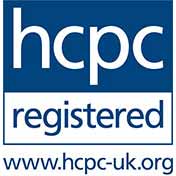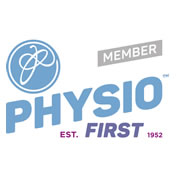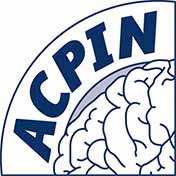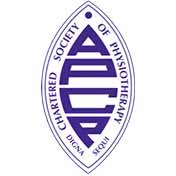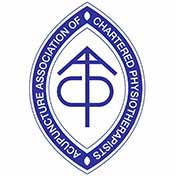Neurological problems are those that affect the normal workings of the nervous system, including the brain and spinal cord. Neurological disorders or injury to the brain or spinal cord may cause a person to lose certain ‘normal’ movements, sensations and physical functions which may affect their everyday tasks, social integration and ultimately their independence.
Neurological conditions may be traumatic, acquired, or congenital. They can affect anyone of any age, including newborn babies and children, and may include conditions such as developmental delay, Spina Bifida, Multiple Sclerosis, Parkinson’s Disease, stroke (CVA / TIA) and Traumatic Brain Injuries. Neurological disruption may be temporary or permanent and affects each individual differently. Some conditions may recover fully, some may cause progressive degeneration whereas others may improve steadily but over much longer periods.
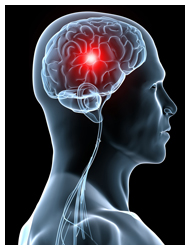 Following an injury to the neurological system, or the onset of a neurological disease, the body’s neural pathways become altered, affecting the nerves that control movement and sensation. Such changes to the nervous system give rise to the many symptoms associated with a neurological disorder. Movements and responses that were once automatic may become abnormal and difficult to produce in the way a person is used to.
Following an injury to the neurological system, or the onset of a neurological disease, the body’s neural pathways become altered, affecting the nerves that control movement and sensation. Such changes to the nervous system give rise to the many symptoms associated with a neurological disorder. Movements and responses that were once automatic may become abnormal and difficult to produce in the way a person is used to.
Neuroplasticity is the way in which the nervous system adapts and rebuilds following damage to the neural (nerve) pathways, and rehabilitation focuses primarily on influencing the body’s neuroplastic ability in order to re-programme normal movement patterns.
Neurological physiotherapy uses a combination of different evidence-based therapeutic approaches to stimulate the recovery of normal movement in a safe and effective way. Manual (hands-on) therapy techniques and rehabilitation exercises aim to help an individual to re-learn ‘normal’ movement patterns and to interpret sensations appropriately, by stimulating their nervous system in a specific way. Specialist advice and support is an essential part of any rehabilitation programme, for both the individual suffering from a neurological condition and their family, carers and friends.
Physiotherapists who are trained specifically in this area, have an in-depth knowledge of the workings of the neurological system, how it responds to injury and illness, and the effect this can have on a person’s normal functioning. Neurological Physiotherapists can identify both subtle and more complex neurological presentations, and formulate a rehabilitation programme to address the difficulties of each individual person. Through expert handling, appropriate positioning and the facilitation of normal movement patterns (which are reinforced through repetition), an individual’s nervous system is able to respond to the stimulus and has the potential to adapt the way in which it controls movement and reacts to sensations. In other words, by experiencing normal movement, an individual independently learns how to move normally.
Rehabilitation exercises may be directed at re-learning how to sit with trunk control, to reach one arm forwards whilst sitting to pick up an object, to roll over in bed, or may be aimed at restoring higher functional activities such as climbing stairs, being able to garden, run or play sport.
Neuro-rehabilitation may be required regularly, on a short or long-term basis, or at specific intervals in order to provide intense bursts of treatment if there are relapses in a person’s condition. It may be that physiotherapy is only required occasionally in order to review an individual’s progress and adapt their exercise programme appropriately. During each physiotherapy session, your physiotherapist should re-evaluate your progress and your current needs, and modify your rehabilitation goals and exercises appropriately.
Neuro-physiotherapy deals primarily with the symptoms and functional difficulties that present with neurological conditions. However, some neurological disorders occur alongside other health problems and complex medical conditions which must be considered in conjunction with any rehabilitation programmes and care plans. Catastrophic injuries such as Traumatic Brain Injuries which may have associated injuries such as fractures, respiratory problems and cognitive difficulties, require specialist handling by a Neuro Physiotherapist who is experienced in dealing with complex presentations involving the neurological system. Paediatric neurological conditions such as Cerebral Palsy, Spina Bifida and neurodevelopmental delay may present alongside other musculoskeletal problems such as foot and ankle deformities and sensory perceptual difficulties, all of which need addressing by a Specialist Paediatric Physiotherapist as part of the child’s rehabilitation.
It is important therefore that neuro-physiotherapy considers all aspects of a person’s medical presentation, and addresses their individual needs in order to maximise their outcome and quality of life.
At Yorkshire Neuro Physiotherapy, we have a highly-trained team whose knowledge and expertise covers all manner of neurological conditions and their associated problems. We are proud to provide a friendly and specialist physiotherapy service for individuals who are dealing with what can often be life-changing and complex neurological conditions.
If you would like to find out more about neurological physiotherapy and what we can offer you, please do get in touch. We are more than happy to chat directly with you over the telephone about your condition and your needs, or with carers and / or family members should that be more appropriate. There is no obligation to arrange an appointment once you have spoken with us, and we are happy to answer any questions that you may have.

